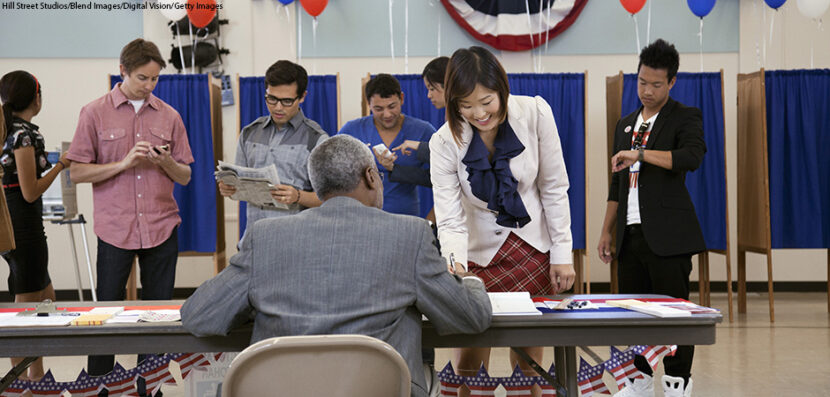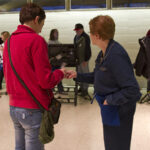Poll Workers Needed!
If you’ve ever accompanied adults to the polls on Election Day, you’ve probably noticed the people who work there. These volunteers play a critical role in helping elections run smoothly. But currently, there aren’t enough people signed up to do those jobs for the November 2022 midterm elections. So, the government is looking to expand its usual pool of applicants. Here, Election Central takes a closer look at the problem and some possible solutions.
What Do Poll Workers Do?
Poll worker responsibilities vary from state to state. In general, these workers greet and check in voters. They explain how to use voting machines, and they process ballots. Poll workers may also troubleshoot technical problems with voting machines, or help tabulate absentee ballots. Some are paid, and some are not.
Why the Shortage?
Because of the COVID-19 pandemic, there are now fewer people willing and able to work at the polls. Traditionally, many poll workers were retirees. This age group might be worried about being in a crowded public space all day and increasing their possible exposure to the virus. The heated political climate has caused incidents of harassment and some safety concerns that also cause poll worker volunteers to reconsider. In fact, a March 2022 Brennan Center for Justice study showed that one out of every five local election officials say they plan to stop volunteering before the 2024 presidential election.
A New Pool of Volunteers
There are several initiatives aimed at bringing in new groups of poll volunteers. Vet the Vote encourages former service members and their families to volunteer at the polls. Similarly, the Poll Worker, Esq. initiative, led by the American Bar Association, encourages lawyers and law students to sign up to volunteer at the polls as well. The website offers training opportunities, and in some states, CLE (continuing legal education) credit for lawyers in exchange for their service.
In some communities, people as young as sixteen can sign up to serve as poll workers. Kids as young as sixth graders can volunteer as student aides. These young volunteers can hand out “I voted” stickers, make sure tables are lined up properly, and perform other Election Day tasks. One Maryland group called Future Vote started in 2004 with the goal of increasing civic participation and knowledge of the political process in young people. Student election aides are called “Future Vote Ambassadors” and may help with putting up signs, packing or unpacking equipment, greeting and thanking voters, offering stickers, helping to keep the polling place clean, and more.



